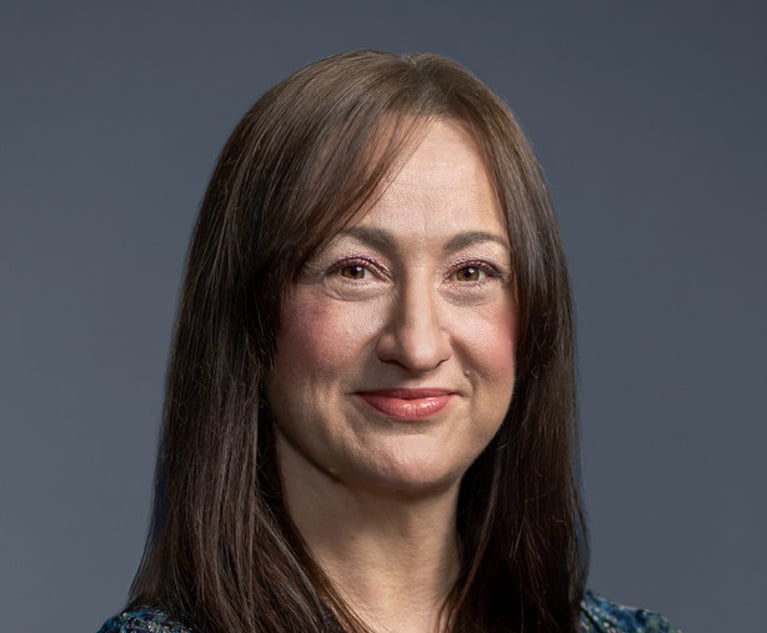Litigators battle against the odds
An insurance industry intent on mega-mergers and the impending effects of the Woolf reforms are having a major impact on Manchester's successful insurance litigation practices. Philip Hoult reports on the practice area's response in the face of adversity
January 27, 1999 at 07:03 PM
4 minute read
With the Woolf reforms looming and the shake-up within the insurance industry continuing, Manchester's litigators face a testing time in 1999.
Manchester's importance as a hotbed of litigation – it is arguably the largest litigation centre outside London – is reflected in the large number of national insurance practices with substantial operations in the city.
These include local firm Beachcroft Wansbroughs (which merged with Vaudreys last year), Berrymans Lace Mawer, Dibb Lupton Alsop and Davies Arnold Cooper (DAC).
A number of the home-grown firms also boast high-quality litigation teams, including Halliwell Landau, James Chapman & Co, Davies Wallis Foyster and Elliotts.
Manchester also supports a large number of practices with a heavy plaintiff bias, such as Pannone & Partners, Thompsons, Russell Jones & Walker, Alexander Harris and Donns.
The upshot of this, according to Tony Brook, litigation partner at Berrymans Lace Mawer, is that Manchester "is a much more competitive market. Lots of firms want to get into insurance litigation in particular."
The build-up to the 26 April launch of the Woolf reforms will have a massive impact on the large number of litigators who trade in the city. But despite this, firms are treating the reforms as a marketing opportunity, rather than feeling a sense of impending doom.
As Andrew Gregory, managing partner of Davies Wallis Foyster, points out: "Litigation is a distress product which is difficult to sell to commercial clients, but for the first time the changes in practice and procedure offer law as an opportunity to actually sell a new product to all clients."
Brook adds: "Most people in business know what is coming. We are trying to educate clients as well as ourselves."
Privately though, many litigators are concerned about the ability of Manchester's court services to cope with the immense changes involved and question whether the necessary resources are in place.
"I think it's going to be rather stormy," says one of the city's most prominent litigators – an opinion shared by many.
As well as the upheaval Woolf will bring, the shake-up taking place in the insurance world is keeping Manchester firms on their toes.
The spate of mega-mergers in the industry (the most recent being that of the Commercial Union and General Accident last year to create the giant CGU), has had a knock-on effect on law firms.
In common with most of its competitors, CGU has decided to review its panels of law firms in a bid to make their outsourcing easier to manage and to cut costs.
The most demanding of clients in the legal arena, insurers are offering the survivors of the cull a greater amount of work. In return they expect heavy discounts, flexible ways of charging and performance to meet standard protocols. One of the biggest insurers is even believed to have asked its panel firms to consider the viability of 'no win no fee' arrangements.
Phil Jepson, who left Dibbs last year to become DAC's head of common law in Manchester, expects this trend to continue. "I anticipate that the big composites will continue to control costs closely," he says.
The demands of Woolf and the insurers, together with the millennium bug, have required the firms to invest heavily in IT and case management systems, which is painful at a time when pressure on fees has never been greater.
This in turn has led to pressures to merge, to provide greater resources. Berrymans' Brook, for one, is not prepared to rule out further mergers.
As well as being better-resourced, larger practices are often better able to withstand the problems presented if, for whatever reason, they are not selected by a particular insurer to be on its panel.
But despite all these challenges, the future is bright for Manchester's litigators.
With a strong emphasis on quality and with insurers looking for value, they are well placed to attract increasing amounts of work away from London.
This content has been archived. It is available through our partners, LexisNexis® and Bloomberg Law.
To view this content, please continue to their sites.
Not a Lexis Subscriber?
Subscribe Now
Not a Bloomberg Law Subscriber?
Subscribe Now
NOT FOR REPRINT
© 2025 ALM Global, LLC, All Rights Reserved. Request academic re-use from www.copyright.com. All other uses, submit a request to [email protected]. For more information visit Asset & Logo Licensing.
You Might Like
View All
MoFo Launches in Amsterdam: Exclusive Interview with Global Chair Eric McCrath
2 minute read
Clifford Chance Boosts Private Credit Offering With Mayer Brown Partner Duo
2 minute read

Ex-Mayer Brown Corporate Lawyer Leads Race for German Chancellor in Snap Election
4 minute readTrending Stories
- 1Courts, Lawyers Press On With Business as SoCal Wildfires Rage
- 2Florida, a Political Epicenter, Is the Site of Brownstein Hyatt's 13th Office
- 3Law Firms Close Southern California Offices Amid Devastating Wildfires
- 4Lawsuit alleges racial and gender discrimination led to an Air Force contractor's death at California airfield
- 5Holland & Knight Picks Up 8 Private Wealth Lawyers in Los Angeles
Who Got The Work
Michael G. Bongiorno, Andrew Scott Dulberg and Elizabeth E. Driscoll from Wilmer Cutler Pickering Hale and Dorr have stepped in to represent Symbotic Inc., an A.I.-enabled technology platform that focuses on increasing supply chain efficiency, and other defendants in a pending shareholder derivative lawsuit. The case, filed Oct. 2 in Massachusetts District Court by the Brown Law Firm on behalf of Stephen Austen, accuses certain officers and directors of misleading investors in regard to Symbotic's potential for margin growth by failing to disclose that the company was not equipped to timely deploy its systems or manage expenses through project delays. The case, assigned to U.S. District Judge Nathaniel M. Gorton, is 1:24-cv-12522, Austen v. Cohen et al.
Who Got The Work
Edmund Polubinski and Marie Killmond of Davis Polk & Wardwell have entered appearances for data platform software development company MongoDB and other defendants in a pending shareholder derivative lawsuit. The action, filed Oct. 7 in New York Southern District Court by the Brown Law Firm, accuses the company's directors and/or officers of falsely expressing confidence in the company’s restructuring of its sales incentive plan and downplaying the severity of decreases in its upfront commitments. The case is 1:24-cv-07594, Roy v. Ittycheria et al.
Who Got The Work
Amy O. Bruchs and Kurt F. Ellison of Michael Best & Friedrich have entered appearances for Epic Systems Corp. in a pending employment discrimination lawsuit. The suit was filed Sept. 7 in Wisconsin Western District Court by Levine Eisberner LLC and Siri & Glimstad on behalf of a project manager who claims that he was wrongfully terminated after applying for a religious exemption to the defendant's COVID-19 vaccine mandate. The case, assigned to U.S. Magistrate Judge Anita Marie Boor, is 3:24-cv-00630, Secker, Nathan v. Epic Systems Corporation.
Who Got The Work
David X. Sullivan, Thomas J. Finn and Gregory A. Hall from McCarter & English have entered appearances for Sunrun Installation Services in a pending civil rights lawsuit. The complaint was filed Sept. 4 in Connecticut District Court by attorney Robert M. Berke on behalf of former employee George Edward Steins, who was arrested and charged with employing an unregistered home improvement salesperson. The complaint alleges that had Sunrun informed the Connecticut Department of Consumer Protection that the plaintiff's employment had ended in 2017 and that he no longer held Sunrun's home improvement contractor license, he would not have been hit with charges, which were dismissed in May 2024. The case, assigned to U.S. District Judge Jeffrey A. Meyer, is 3:24-cv-01423, Steins v. Sunrun, Inc. et al.
Who Got The Work
Greenberg Traurig shareholder Joshua L. Raskin has entered an appearance for boohoo.com UK Ltd. in a pending patent infringement lawsuit. The suit, filed Sept. 3 in Texas Eastern District Court by Rozier Hardt McDonough on behalf of Alto Dynamics, asserts five patents related to an online shopping platform. The case, assigned to U.S. District Judge Rodney Gilstrap, is 2:24-cv-00719, Alto Dynamics, LLC v. boohoo.com UK Limited.
Featured Firms
Law Offices of Gary Martin Hays & Associates, P.C.
(470) 294-1674
Law Offices of Mark E. Salomone
(857) 444-6468
Smith & Hassler
(713) 739-1250







